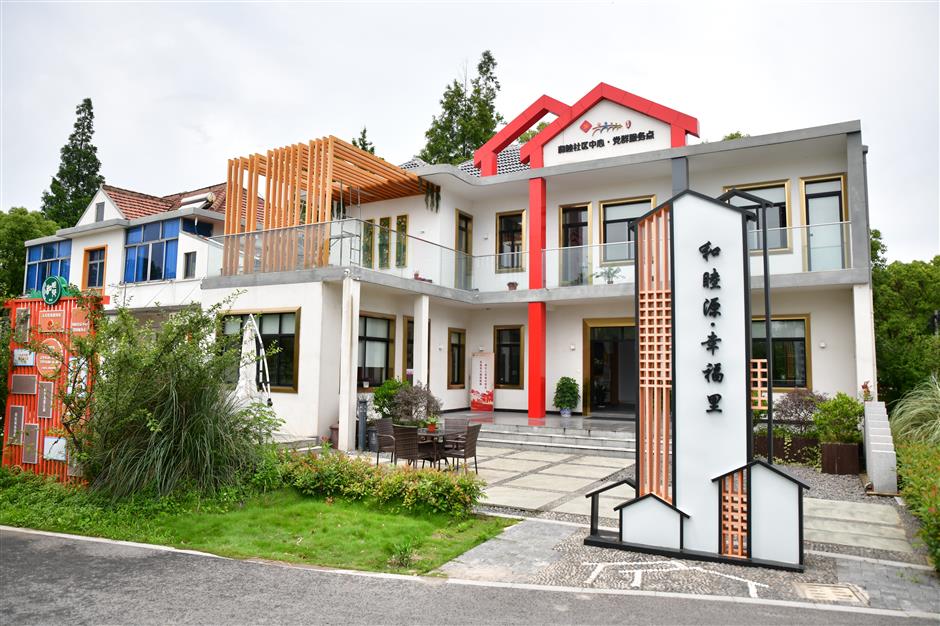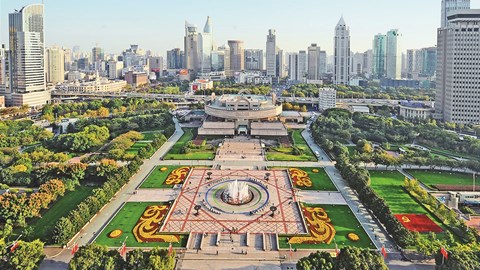Hemu Village on a mission to draw in city dwellers

Hemu Village in Qingpu’s Zhaoxiang Town offers a plethora of dining and leisure activities that evoke a strong sense of an idyllic lifestyle.
Agriculture, forestry and tourism offer Hemu Village in Zhaoxiang Town, Qingpu District, a unique approach to experiment with rural rejuvenation.
The village has become a wanghong (Internet sensation) destination. On weekends, it is crowded with people who come to enjoy the golden rice waving in the breeze.
The aroma of rice is blended with freshly made coffee and baked lamb. Aside from agricultural scenarios, new business formats such as cafés and catering have emerged in the village, bringing a strong feeling of idyllic life.
The village is collaborating with Shanghai Tianyuanmeng Agricultural Development Company to develop an ecological agriculture, leisure and sightseeing destination that combines the roles of science education, agricultural production and rural tourism.
“Hemu Village has substantial geographical advantages and a superior natural environment,” said Xiong Zhengxing, the company’s chairman. “It also retains its original rustic aspect, which is particularly appealing to urban tourists.”
According to Xiong, the company has been actively researching new formats that combine agriculture with leisure and tourism while expanding basic agriculture since it settled down in Hemu Village in 2021.
Visitors to Hemu Village’s autumn rice fields get to see farmers at work and their children harvest rice with the farmers and experience the bounty of the season.
“In addition to rice harvesting, we have established a variety of agricultural activities, such as fruit and vegetable gardens, that combine intelligent agriculture and leisure agriculture to boost scientific research value and service the catering sector,” Xiong said. “Here, visitors can see, feel, taste and touch real crops.”
In addition to agricultural initiatives, the company is also leveraging the village’s abundant water resources.
“We promote various water activities such as kayaking and dragon boating,” said Zhang Li, the company’s general manager. “We hope that the water sports event will contribute to the growth of the local tourism economy.”
















